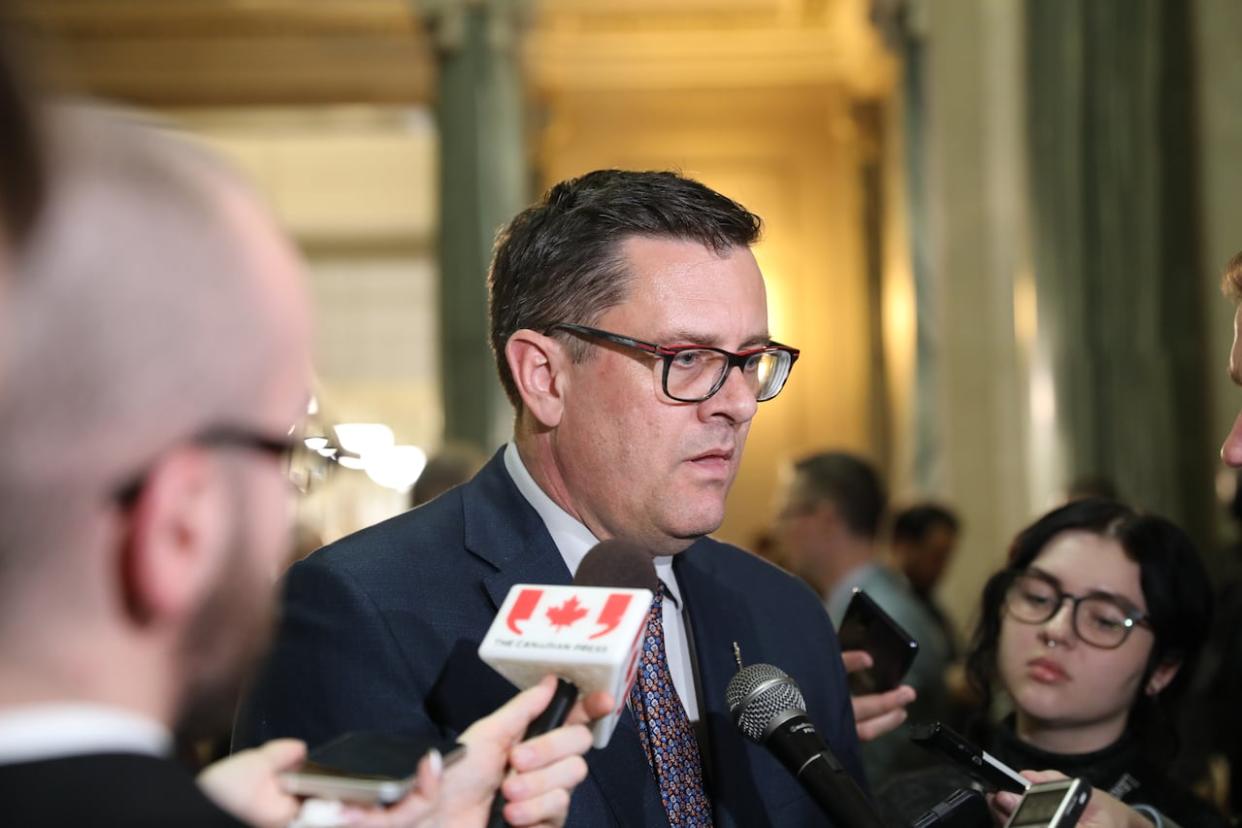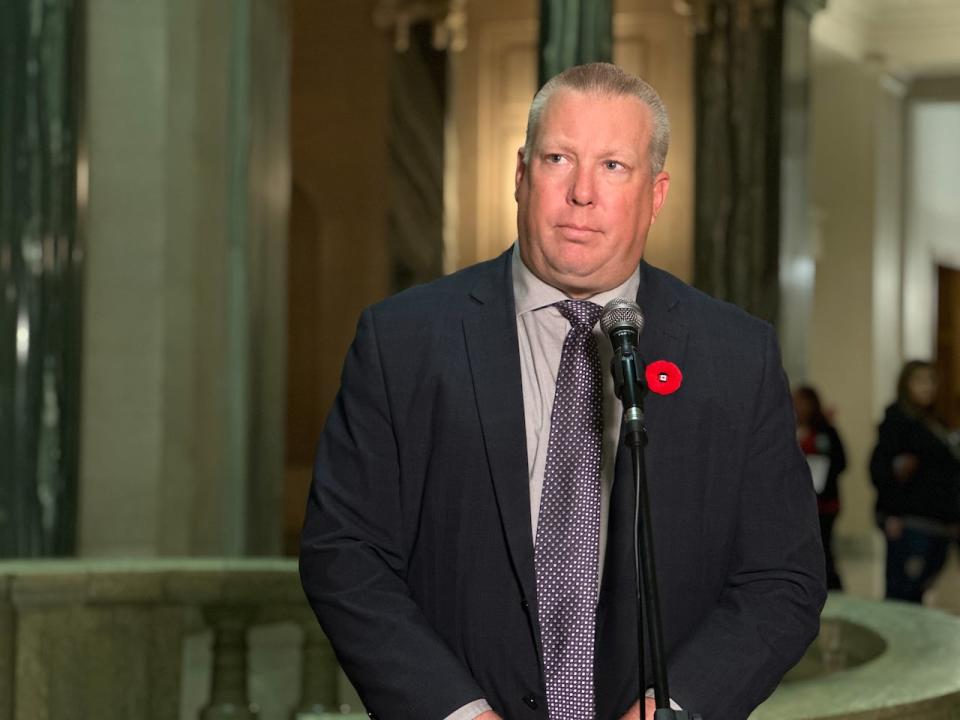Wanted violent offenders will lose provincial benefits as new Sask. unit begins work

A law enforcement team, whose mission is to help put wanted people behind bars and cut their social benefits, is now up and running.
The warrant intelligence team, the genesis of which mainly stemmed from the 2022 mass stabbing in James Smith Cree Nation and nearby Weldon, Sask., will work with government ministries and Crown corporations to find "prolific violent offenders" with outstanding arrest warrants and, if appropriate, suspend services such as income support or social housing.
Taxpayers "shouldn't be paying for somebody to be in breach of their parole. They shouldn't be paying for their housing. They shouldn't be paying for their day-to-day living when they actually should be behind bars," Corrections, Policing and Public Safety Minister Paul Merriman told reporters Monday.
The Sept. 4, 2022, mass stabbing by 32-year-old Myles Sanderson which resulted in 11 deaths and 17 injuries in James Smith Cree Nation and Weldon, Sask., was the main catalyst for the legislation and the new warrant intelligence team, Merriman said.
The team, which started operating Nov. 1, was created through the Warrant Compliance Act. That legislation was tabled just months after the mass stabbing, and was granted royal assent in May.
Sanderson had previously been serving a nearly five-year federal sentence for assault, robbery, mischief and uttering threats before receiving a statutory release in August 2021.
After the mass stabbing, police confirmed they had been searching for Sanderson since May 2022 because he had stopped meeting with his assigned caseworker. He was classified as "unlawfully at large" as a result.
When the Warrant Compliance Act was first introduced, Saskatchewan government officials confirmed Sanderson had been receiving social benefits, but the specific provincial programs in which he was enrolled were not provided.
Merriman noted Monday, however, that there is a "significant amount" of wanted violent offenders in Saskatchewan.
The warrant intelligence team is made up of about six people who have a background in law enforcement, Merriman said. Their task is mainly intelligence gathering, but they may have to go out into the field from time to time.

The government's goal in creating the team, in part, is to prevent taxpayers from having to pay for offenders' cost of living. (Kirk Fraser/CBC)
Whatever they gather, he said, would be passed on to local police, Saskatchewan RCMP or the province's warrant enforcement and suppression team, which focuses on high-profile offenders with outstanding arrest warrants or those in violation of court-imposed conditions. Information could also be shared with the health and social services ministries.
The Warrant Compliance Act stipulates that the intelligence team can gather information regarding outstanding arrests, including the location of a "prolific violent offender." But the team can only relay location information to police to arrest that person.
The team will focus on the "most violent" people, who breach their parole or are wanted in connection to a violent crime, Merriman said.
Effects of suspending benefits
There is criteria for law enforcement to determine who meets that threshold, Merriman said. The wanted person may not be receiving social services — but if they are, that information would be relayed the Ministry of Social Services.
The warrant intelligence team will work closely with the Ministry of Social Services to mitigate the impacts a service suspension might have on an offender's dependent family members.

Social Services Minister Gene Makowsky says the ministry will evaluate case-by-case how benefits for an offender's dependents will be affected. (Kirk Fraser/CBC)
"We'll want to be careful to ensure families aren't hard done by this — but at the same time, not wanting to support dangerous offenders out there," said Social Service Minister Gene Makowsky.
The ministry will evaluate the circumstances on a case-by-case basis, he said, but there are provisions to extend social benefits for a "certain amount of time."
Fewer people wanted on outstanding arrest warrants would be a good thing — but it's still unclear whether the team will have an impact, said Shawn Fraser, CEO of the John Howard Society, a non-profit that focuses on the causes and consequences of crime and helps people who are at-risk or involved in the criminal justice process.
"I'm not convinced this is going to lead to a lot of people turning themselves in, or being caught," Fraser said. "What it will do is take some people who are in a very desperate situation and put them in a more desperate situation."
The team's results could go either way: lead to arrests, or more crime, he said.


